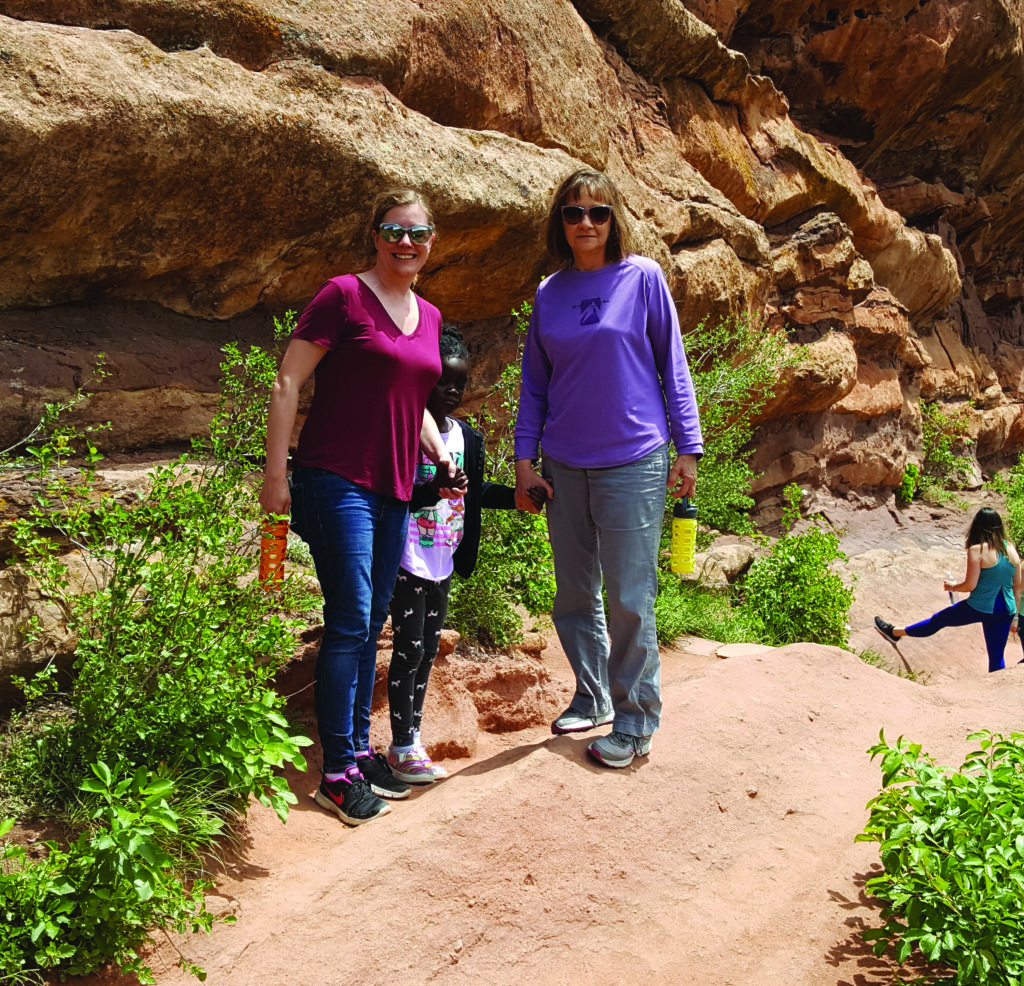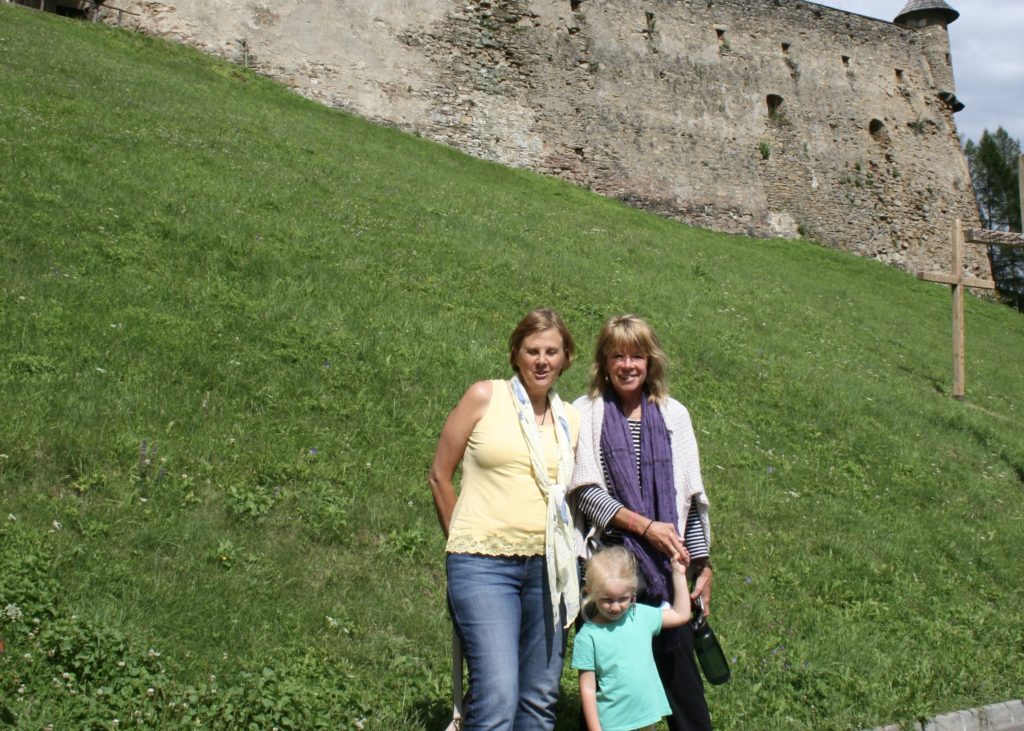Dear OrthoIndy,
By: Francia Kissel
THIS POST IS PART OF THE ULTIMATE GUIDE TO BACK PAIN RELIEF
This is my OrthoIndy story—it‘s a story of pain, fear, loss, and ultimately, hope.
I crashed my bike in the summer of 2017 (my only crash yet—a dog was chasing me). Although I was bloody, I felt pretty happy that I had not rebroken a recent triple fracture in my humerus.
A couple of weeks after the crash, I began having back spasms and sciatica and thought perhaps I wasn’t so fortunate. But the back pain was not a consequence of the recent crash after all, but a result of long-term degenerative changes in my spine. The crippling pain ultimately threatened many joys in my life, including my career teaching college students.
After learning I had spondylolisthesis and other issues, I consulted Dr. Greg Poulter, an OrthoIndy spine surgeon at OrthoIndy. At that initial visit, I had been practicing the core and low back exercises from the OrthoIndy video library and was feeling much better. I thought I could continue the exercises and my back would be fine.

Non-operative treatment options
Over the next twelve months, the back and leg pain became more frequent and intense, and I tried chiropractic manipulation, physical therapy, oral steroids, steroid injections and consultations with a neurosurgeon.
It was the neurosurgeon who scared me into finding my way back to Dr. Poulter, where I learned how much my spine had degenerated.
Because I could not foresee an end to the pain, I had announced my retirement from my position teaching English and directing first-year programs in the School of Liberal Arts at IUPUI, a job I adored and really hadn’t planned to quit, ever.
I could no longer walk across campus to my classrooms and frequently locked my office door to prevent students from barging in while I stretched out on the floor attempting to alleviate the pain.
My final semester was rough, as I was teaching in a first-year program that involved plenty of field trips to museums and the zoo. I love field trips as much as the students do!
Walking through each museum was agonizing, even though my students pointed out every bench and chair to me. These were surely my most caring students ever, but I felt I was losing my exuberance for teaching.
My few thoughts about retirement had included dreams of hiking in the mountains with my grandchildren, and those dreams also looked hopeless, as I could not walk more than five minutes without enduring excruciating pain.
Sciatica doesn’t seem very serious when reading about it, but I would have done almost anything to relieve it—in fact, my most fervent desire was for a leg amputation, and I asked my horrified husband more than once to fetch me the axe—and I was only half joking.
READ THE ULTIMATE GUIDE TO NON-SURGICAL ORTHOPEDIC CARE
Surgery at OrthoIndy
I chose OrthoIndy over other clinics because my family and I had confidence in the practice, having received care for previous injuries, including my triple fracture.
Although I was ready for just about anyone to help me, there were two reasons I preferred Dr. Poulter.
The first reason was Dr. Poulter’s extensive experience with complex cases, coupled with the use of robotic guidance so that the surgery could be minimally invasive.
The neurosurgeon I consulted had planned an open back surgery, fusing from T10 to the sacrum, removing pieces of several bones, and grinding down my spinous processes. When I asked Dr. Poulter what bones he would lop off, he just laughed and assured me he would not be removing any.
In our culture, the spine is a metaphor for independence and courage; in fact, my literature students reacted to a passive character in The Handmaid’s Tale by wishing she would “grow a spine.” Since the spinous processes are the most obvious part of the spine, with the bumps visible through the skin, I hated the idea of having them ground down.
The second reason I chose Dr. Poulter has to do with his ability to establish rapport. During my teaching career, I learned how to set students at ease immediately, and I appreciate when other professionals do the same for me.
Dr. Poulter is personable, caring, honest and direct. He showed me two X-rays to illustrate the dramatic change in the curves of my spine over the previous year, and he said, “We need to get you back to living your life.”
To Dr. Poulter, I was not just a crooked back that he would have to spend hours fixing; I was a person with a life, and he planned to be a partner in enabling me to achieve a better quality of life.
I want to be treated like a partner in my medical care, and I found that at OrthoIndy. Mike Skonieczka (Dr. Poulter’s physician assistant), the hospitalists, the nurses during my five-day stay and the physical therapist I am now seeing, all have treated me with respect. Furthermore, they welcomed and encouraged my family’s involvement.
Life after spine surgery
The surgery was rigorous and its aftermath challenging, particularly because the sciatica did not subside for a couple of months. I am now four months out from surgery, working on loosening tight leg muscles and increasing flexibility and endurance.
I still struggle to thread my socks over my toes and to get up and down from floor level, but I am swimming and biking a couple of times per week and recently had the chance to hike a bit with my Colorado granddaughter.
I actually find rehab a blast—it’s exhilarating to add more laps in the pool or minutes on the elliptical than I thought I could do. Physically, I have a way to go, but my future looks much more fun now, since the old pain that left me writhing on the floor is gone.
My retirement plans include teaching at IUPUI on a part-time basis; I crave interaction with students and cannot imagine giving up teaching and mentoring entirely. I am looking forward to having more time to research, read, write, volunteer and, yes, take more classes myself.
I am happy that I chose to undergo the surgery; I am truly grateful to the doctors and staff at OrthoIndy and to my incredibly supportive family. My husband was a gentle and patient nurse. My daughters worked their jobs remotely while caring for Mom, writing appellate briefs and economic development reports from OrthoIndy Hospital and from my living room. My grandchildren learned not to give me kamikaze hugs, but gentle ones instead.
I have recommended Dr. Poulter and OrthoIndy to family members, to friends and IUPUI colleagues, and to strangers in checkout lines who confessed to suffering back pain. Dr. Poulter said to me, “There is hope for you.” When I recommend him, I feel I am passing on that hope.
To make an appointment with Dr. Greg Poulter, please call 317.802.2424 or visit Orthoindy.com/Request.
Schedule an appointment
Your well-being is important to us. Click the button below or call us to schedule an appointment with one of our orthopedic specialists. If your injury or condition is recent, you can walk right into one of our OrthoIndy Urgent Care locations for immediate care. For rehabilitation and physical therapy, no referral is needed to see one of our physical therapists.





